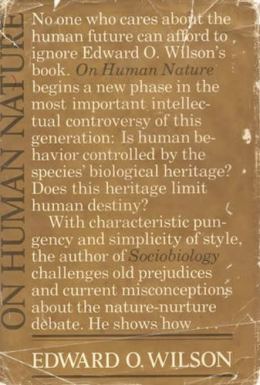
We like to think we’re unique human beings, possessed of souls or free will and charting our own path through the universe. But science, as the 20th century unfolded, had some hard news for us. We did not transcend our biology but were a product of it, with human nature the result of millions of years of evolution hardwired into our bodies and brains. Edward O. Wilson, the Harvard biologist who got his start studying ant colonies, was on the front lines of this revolution, and his 1975 book Sociobiology was a founding text. After Sociobiology, which focused mostly on nonhuman species, Wilson turned his full attention to people. The result was 1979’s Pulitzer Prize–winning On Human Nature, which explained how human behavior, how sex and war and love and religion, were driven by genetics and evolution. But Wilson’s real achievement was to show how a sociobiological view of humanity could still have grandeur. As Wilson wrote: “The evolutionary epic is probably the best myth we will ever have.”
